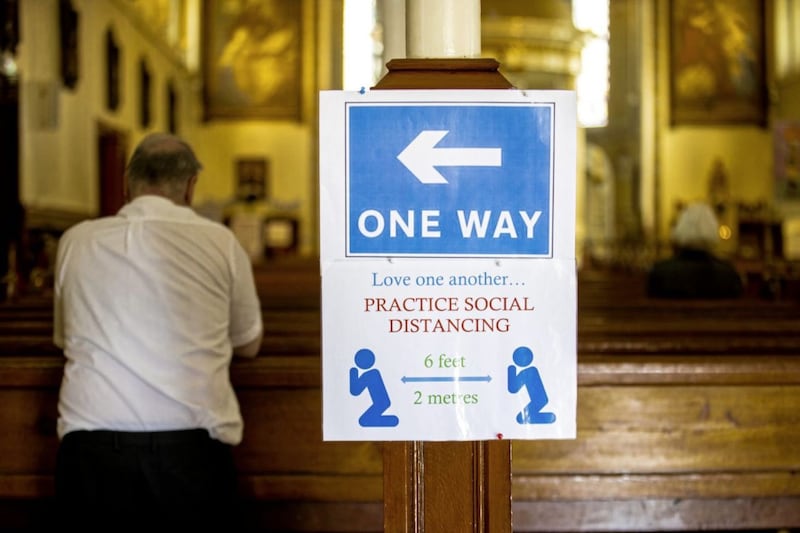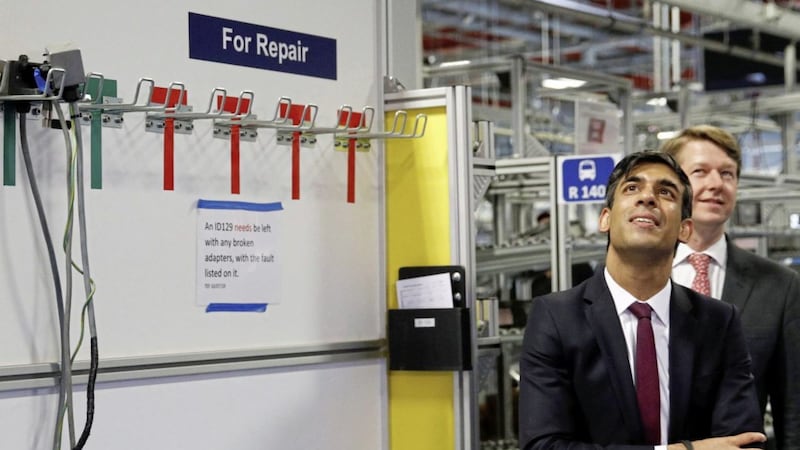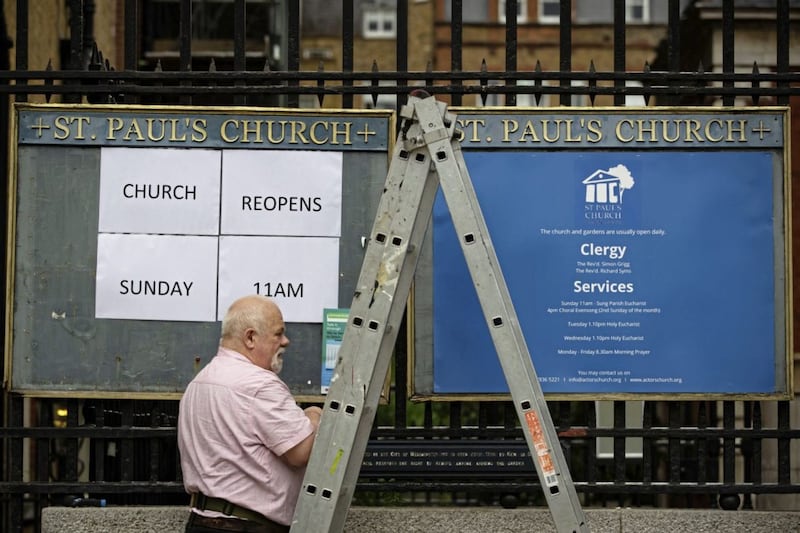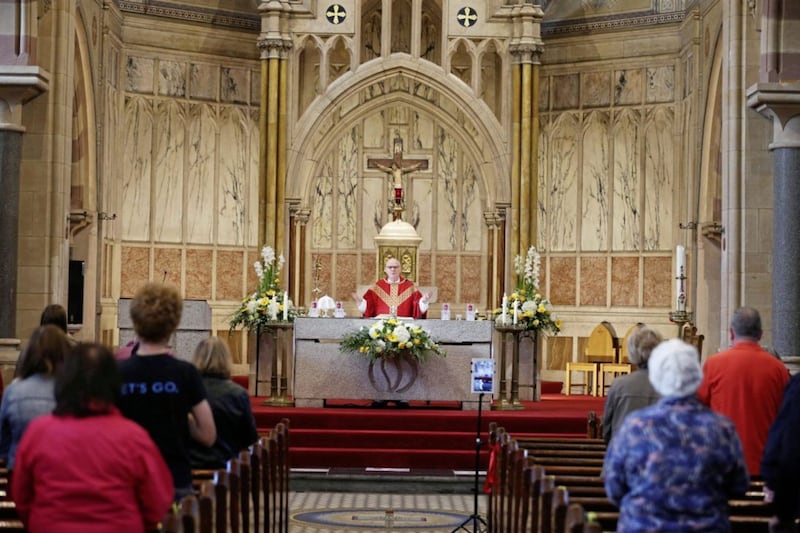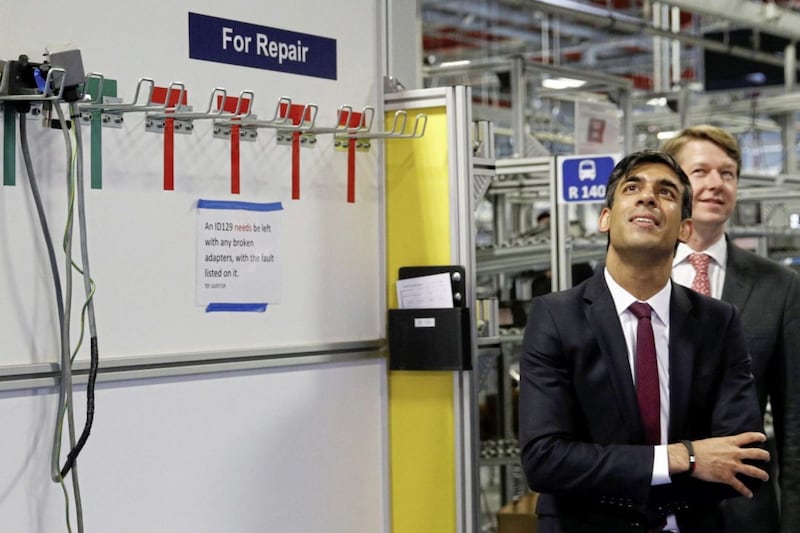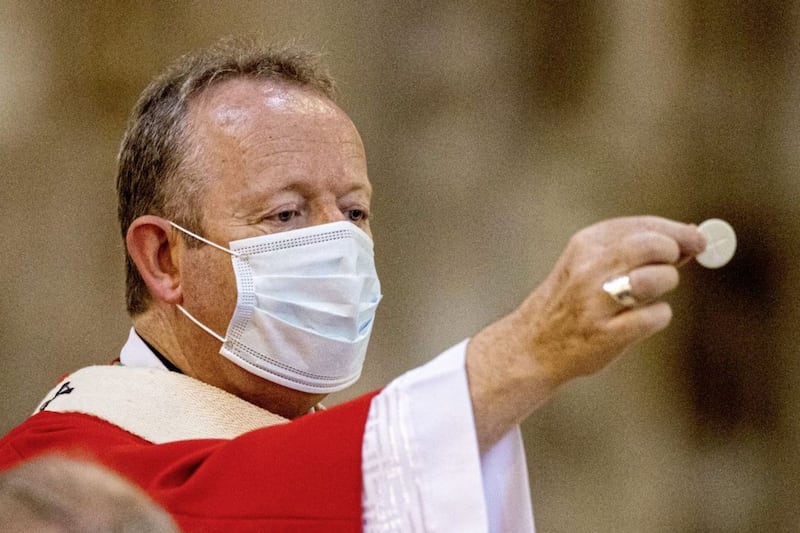IN his speech last week in Westminster, Rishi Sunak, the Chancellor of the Exchequer, was clear that "hardship lies ahead" and warned that "the Independent Office for Budget Responsibility and Bank of England are both projecting significant job losses - the most urgent challenge we now face".
The core of his speech was a series of announcements designed to help address that particular hardship.
Yet there is also an ongoing 'backlog' of hardship that is still with us. The last months of lockdown have brought real hardship - even trauma, a word that has cropped up in many conversations - to very many people.
Working on the frontline in hospitals and care homes, and the reality of not being able to visit family in them has been very stressful, even distressing.
And when relatives have died, all too often there has been added grief because of the limitations of funeral arrangements.
The effects of isolation have been taking their toll on mental health; the need for social distancing has heightened the reality of treating family in much the same way as strangers; fear of catching the virus has kept many people indoors, especially the elderly and the vulnerable.
In education, home schooling has been something of a nightmare for many parents, and many children have missed out on meeting their friends in school, on being well taught and in doing their homework.
For the churches, it is in offering high quality pastoral care to help deal with hardships of all kinds where the greatest challenges, the greatest needs and the greatest opportunities lie
These are but a few examples of the 'new normal' in which our churches are now seeking to re-open and rebuild their work.
Much care and effort is being put in to doing that well. There can be little doubt that keeping church activity safe into the autumn and winter will, of itself, make very considerable demands on both church leadership and church members for quite a long time to come.
Constant cleaning, constant planning and constant vigilance will be the watchwords.
Yet, for the churches, it is in offering high quality pastoral care to help deal with hardships of all kinds where the greatest challenges, the greatest needs and the greatest opportunities lie.
This is what they can, and should, excel in doing. It is a huge challenge for clergy and church leaders to help both those who are, and those who are not, connected with their congregations to recover from the impact of what these last months have brought.
And it must also be acknowledged that many clergy too have also found recent weeks unusually stressful.
On top of what has been and still is our experience, another pastoral tsunami is coming our way - soon.
More hardship clearly lies ahead. "Is unemployment going to rise, are people going to lose their jobs? Yes, and the scale of this is significant," the Chancellor himself said, speaking to BBC Breakfast last Thursday.
And redundancy is now an everyday occurrence. Last month, (June 12) this newspaper reported "there are fears for thousands more jobs across Northern Ireland as major employers look to cut costs in response to the impact of Covid-19 on the economy".
The increasing hardship in Northern Ireland is seen in new research by the Trussell Trust, an anti-poverty charity founded on Christian principles which works with people of all faiths and none.
They run many of our food banks, and reported recently that there have been bigger increases in need here during the past year than anywhere else in the UK.
Domestic abuse too is on the rise as family pressures increase. The Department of Finance has said: "Recent news reports have indicated that during the current restrictions on movement due to Covid-19, there has been a rise in domestic abuse incidents."
Their message is "Stay home does not mean suffer home domestic abuse during Covid-19".
The Covid-19 virus is one ten-thousandth of a millimetre in size. Yet it continues to bring devastation on a vast scale to billions of people.
Every person on the planet, on our island and in our community, has become vulnerable to it - materially, financially, physically, emotionally, mentally, spiritually. No longer can we pretend that we are in charge of our own destiny.
The opportunity and the privilege to pastor people, and 'pastor the community' is there to be embraced
Yet this is exactly the sort of situation where the strengths of Christian faith and the resources of the church of Jesus Christ can be seen to flourish.
There is no other institution or organisation that is in every part of the country, and that has such experience of and capacity for care (in spite of horrors of the past).
Neither the church as an institution, nor its members can 'fix' the situation we are in or even provide large-scale specialist care.
Yet the opportunity and the privilege to pastor people, and 'pastor the community' is there to be embraced.
To care well for people outside the church walls as well as those inside them; to take seriously and practically the call of the Apostle Paul to "consider others better than yourselves"; to bring a whole new dimension to the command of Jesus himself to what it means to love your neighbour as an outworking of love for God.
The expressions of neighbourly care seen so often in recent months could rapidly evaporate as busyness returns, and new personal, family and workplace challenges appear.
The temptation to focus primarily on looking after ourselves will be very real. Yet to do that would be a denial of what it means to be an active committed follower of Jesus Christ in the Covid-shaped world of 2020 and beyond.
This calls for the giving of active support, and the outpouring of unselfish - even sacrificial - care and love in the Lord's name to those around us, whoever they are, and whatever the hardship it is that they are facing.
Rev Dr Norman Hamilton is a former Presbyterian moderator.
